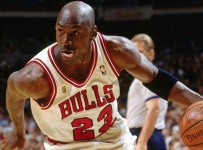Top 10 Principles From Jay Bilas’ Toughness
As we inch closer to this weekend’s Final Four, you will hear many descriptions of the participating teams. You will read all about Florida’s 30 game winning streak, Wisconsin’s offensive efficiency & Kentucky’s number of future NBA draft picks.
One other term you will commonly hear this week is toughness. Maybe it will be the toughness of Shabazz Napier to hit shots in clutch moments. Or maybe you’ll hear about toughness of Wisconsin coach Bo Ryan in overcoming his father’s death this season.
What exactly is toughness? We all might have visions of something different when asked to picture toughness. Maybe you picture a body builder, an old truck or a cheap steak. True toughness is something that can be difficult to recognize and even harder to define.
ESPN’s college basketball analyst Jay Bilas wrote an awesome book on the subject of what makes a person tough in his appropriately named book, Toughness: Developing True Strength On and Off The Court.
I was blown away by the many thought provoking messages that I discovered in this book. I could go on an on about the many things Bilas covered, but instead I will summarize them with a top 10 list.
Here are what I found to be the top 10 principles from Bilas’ Toughness.
#10 – “Never delay gratitude”:
Bilas begins his book with this quote from the late Wake Forest coach Skip Prosser. Most people put their acknowledgments in the back of the book, but not Jay. He feels that the book wouldn’t be possible without the help and support of those around him and he wants everyone to know upfront. I think this is great. If you have a powerful quote before you even get into the real book, then you know you have an awesome book.
#9 – Toughness Has No Relationship to How Nice a Person is:
Bilas talks about how his parents are among the toughest people he knows, but he also makes it clear how nice, polite and smart they are. Many of us think that you have to be a jerk to be tough. We assume bullies are tough, but they aren’t. You can be nice and tough at the same time.
#8 – “Responsible to the element, accountable to the mission”:
This quote comes from NASA engineer Daryl Woods. Woods explains this by saying, “You have to play your position and understand what every other position does and how you fit with the team.” Too often we are only worried about our role and don’t focus on how everyone else fits into the mission.
#7 – “You can’t get to the top of the ladder in one step, but you can get to the bottom in one step”:
Bilas’ dad tells hi son this after Jay literally fell off of a ladder. This quote also applies to non-ladder situations. Every step is important. You can’t expect to get to the top of your sport or field by skipping steps on the ladder. At the same time, be mindful of the steps you have already gone above. Remember the work it took to get past them and make sure you don’t fall back to the beginning.
#6 – “If you win, take immediate action to set the stage for your next win”:
This quote comes from Hall of Fame coach Bobby Knight. Knight told this to Coach K. before the 1991 Final Four against UNLV. It is great to enjoy a win, but we don’t want to celebrate wins for so long that we fail to win the next game, opportunity or job.
#5 – Concentrate on what you’re doing while you’re doing it:
If you are anything like me, you get focused on things you can’t control. Jay Bilas uses a story where he was worried about school work during a basketball game. His focus was not on the game and his play suffered. His dad used that as a lesson to teach his son to concentrate on one thing at a time. Focus on what is before you, not on what is in store for you.
#4 – “Next play”:
Bilas explains that this quote is commonly used by Coach K. This is Coach K’s way of preventing his players from dwelling on what just happened, good or bad. Like the lesson Bilas learned from his dad in #5 above, you should only focus on the present. As a player and assistant coach at Duke, Bilas heard “next play” hundreds of times. None more important than when Coach K. said it before Christian Laettner’s incredible game winning shot in the 1992 NCAA Tournament. Who knows if Duke would have been ready for that moment if Coach K. wouldn’t have drilled “next play” into their heads?
#3 – Adapt and Overcome:
This is the motto of Camp Arifjan. Bilas went to Arifjan as a part of Operation Hardwood, an event organized by the USO in which college coaches visited military camps to coach servicemen. No matter what situation these soldiers were presented with, they were expected to use all their resources to adapt to the circumstance and overcome all obstacles. Wouldn’t it be great if we applied this same principle to our lives? Image what we could overcome.
#2 – “You are not tough alone”:
Here’s another quote from Coach K. I love this quote because you can almost take out the word tough and leave a blank space and it still works. You are not _____ alone. We don’t think of toughness as something we need help from others to achieve, but no one is tough by themselves.
#1 – Power of Hope:
The most important message I found from this book came from the example of Dr. Henry Friedman, a neuro-oncologist and the Deputy Director of the Preston Robert Tisch Brain Tumor Center, and professor of neuro-oncology at Duke University Medical Center. Dr. Friedman said, “I believe the most important thing in any endeavor is hope. You cannot believe it is hopeless, because if you do this, it is.”
He works with the toughest people in the toughest situations. His patients are fighting cancer, but he doesn’t let them give up hope. When he gives patients bad news, he immediately shifts his focus to hope, and a positive outcome for that patient. Without this, they can give up before they even start the fight. Hope gives providers and patients the toughness necessary to fight the fight. Bilas and Friedman make it very clear that you can’t be tough without hope.


